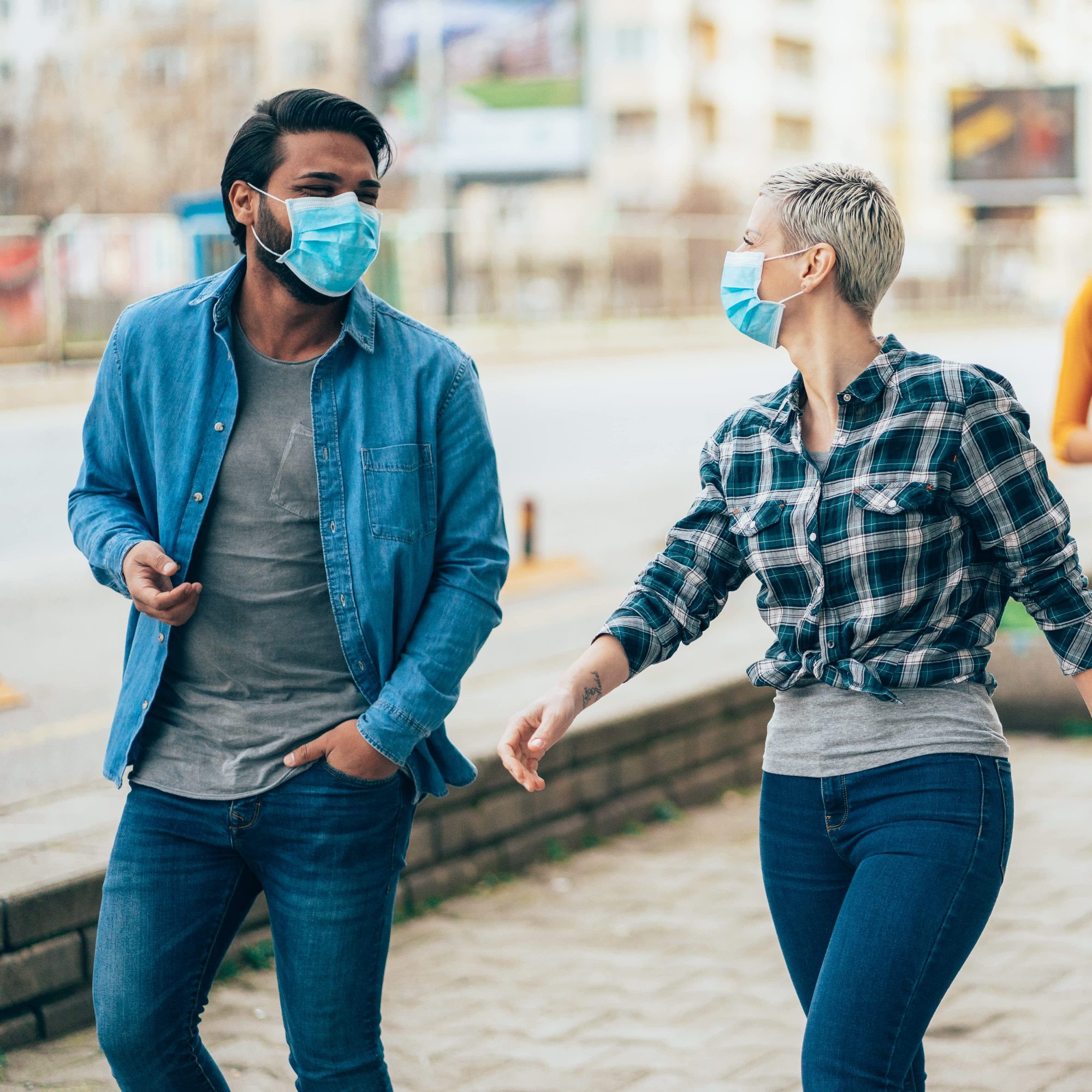
- POPSUGAR Australia
- Fitness
- While Asymptomatic Spread of Coronavirus Can Happen, the WHO Now Says It's “Very Rare”
While Asymptomatic Spread of Coronavirus Can Happen, the WHO Now Says It's “Very Rare”

Previous concerns that asymptomatic coronavirus patients could spread the disease is partly the reasoning the CDC recommended social distancing. While some people with COVID-19 will experience a high fever, cough, and shortness of breath, David Cutler, MD, a family medicine physician at Providence Saint John’s Health Center in Santa Monica, CA, told POPSUGAR in a previous interview that many people who are infected experience no symptoms at all, and could unknowingly be spreading the virus.
But on June 8, the World Health Organization (WHO) stated that while asymptomatic people can still spread the coronavirus, they’re not the main ones transmitting the virus. American infectious disease epidemiologist, Maria Van Kerkhove, PhD, who is the head of WHO’s emerging diseases and zoonosis unit, said at a news briefing from the United Nations agency’s Geneva headquarters, according to CNBC.com, “From the data we have, it still seems to be rare that an asymptomatic person actually transmits onward to a secondary individual.”
Dr. Van Kerkhove advised that government responses should focus on detecting and isolating infected people who actually have symptoms, and track anyone who might have come into contact with those individuals. “We have a number of reports from countries who are doing very detailed contact tracing. They’re following asymptomatic cases. They’re following contacts. And they’re not finding secondary transmission onward. It’s very rare,” she said.
Asymptomatic cases are different from presymptomatic cases, which is when a person becomes infected with coronavirus but hasn’t started showing symptoms yet. As CNBC.com reported, on April 1, the CDC published a report that noted social distancing is important because of the “potential for presymptomatic transmission.” And on April 23, the CDC published another report that stated asymptomatic and presymptomatic cases “might contribute to transmission” of the virus in a nursing home setting.
Related: Here’s What We Actually Know About How Long COVID-19 Antibodies Could Last
Still, while there has been research published that has reported the asymptomatic and presymptomatic spread of the virus, Dr. Van Kerkhove said what we really want to focus on is following the cases of people who exhibit symptoms. She added that if we actually followed and isolated all the symptomatic cases, followed the people they came in contact with and quarantined them, we would “drastically reduce” the outbreak.
This statement stirred up some concern and skepticism from doctors, so on June 9, Dr. Van Kerkhove clarified that asymptomatic spread is a “really complex question” and much is still unknown. She added, “I used the phrase ‘very rare,’ and I think that that’s misunderstanding to state that asymptomatic transmission globally is very rare. I was referring to a small subset of studies.”
Studies show that about 16 percent of the population may be asymptomatic, and some models developed by other scientists suggest as much as 40 percent of transmission may be due to asymptomatic individuals, she said to clarify her previous statement. Dr. Mike Ryan, MD, executive director of the WHO’s emergencies program, added that while asymptomatic spread of the coronavirus does occur, the portion of asymptomatic individuals who transmit the virus remains a “big open question.” He explained, “It’s clear that both symptomatic and asymptomatic individuals are part of the transmission cycle. The question is what is the relative contribution of each group to overall number of cases.”
To reiterate, this doesn’t mean you should completely disregard the guidelines for social distancing and staying safe during the pandemic, even if you’re not showing symptoms; research and information about the virus keeps evolving, so it’s best to follow best practices. You should still wear a mask when you’re in public, stay six feet away from other people, frequently wash your hands with soap and water for at least 20 seconds, use hand sanitizer if you don’t have access to soap and water, and follow your city and state’s recommendations.
POPSUGAR aims to give you the most accurate and up-to-date information about the coronavirus, but details and recommendations about this pandemic may have changed since publication. For the latest information on COVID-19, please check out resources from the WHO, CDC, and local public health departments.

